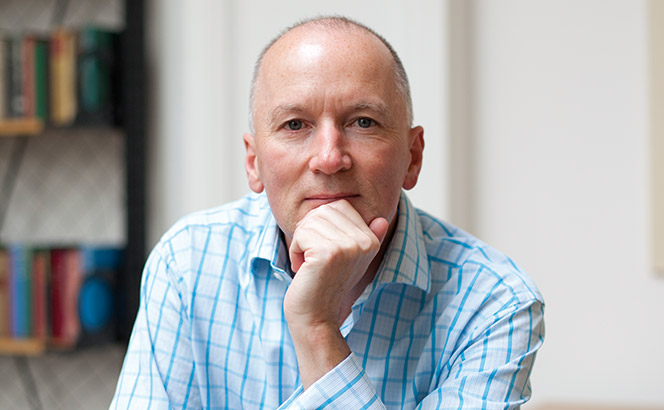It has been the question raised over wine by many seasoned litigators for months now: what’s going on at Enyo Law? At the beginning of last year, the litigation boutique hit the headlines thanks to surprise merger talks with fellow disputes specialist Stewarts Law, but since the discussion was abandoned the influential outfit has gone to ground.
Formed by ex-Addleshaw Goddard partners Simon Twigden (pictured), Pietro Marino and Michael Green, Enyo was launched in 2010 with a post-Lehman preoccupation of litigating against banks. The concept was simple: pick up the big-ticket work that larger firms were conflicted out of. It proved an immediate success, as the firm’s founders drew profits within a year thanks to some high-profile work. The firm won an instruction against an investment bank and lucrative work for Russian oligarch Boris Berezovsky, as well as representing claimants in a widely-reported case between North Shore Ventures and Anstead Holdings.
Despite equity being tightly held, associates were paid well, with generous bonuses for hitting billing targets and firm-wide performance. Enyo became hugely profitable, with revenues climbing 38% to £20.8m in 2016, while remuneration among the firm’s members hit £12.6m.
Aside from the hire of a tax disputes specialist and an insolvency specialist from Deloitte and Olswang respectively, 2017 was a relatively quiet year. Part of that was a reaction to what was felt to be overblown coverage of the Stewarts talks, a first-date discussion presented almost as a trip down the aisle (Twigden and Stewarts managing partner John Cahill go back years).
The shift of the firm’s practice even further towards international clients and arbitration also contributed to the lower profile.
That in part speaks to the challenges of handling complex litigation, which grows ever more work-intensive and can strain the logistics of considerably larger firms. Lovells, for example, was felt by many to have taken years to get back into stride after the end of the long-running BCCI dispute.
With Enyo distinguished for handling complex cases, the question is always how easy it will be to move on after major cases like the Libyan Investment Authority (LIA)’s long-running court battle with Société Générale and businessman Walid Giamhi, which settled last May. LIA was advised by Enyo.
The firm would counter that the model was always predicated on handling a small number of big-ticket disputes that, by definition, can settle at any time. Under this reading, there is no hedge beyond low fixed costs, a strong balance sheet and focusing on what you are good at (the firm’s accounts confirm the first two qualities are present). The firm is also still a natural referral choice for the Bar and Magic Circle.
Enyo’s most recent LLP accounts, filed in January, suggest at the least that growth has paused during 2016/17 – with revenue dipping from £20.8m to £20.4m. Operating profit was down from £12.5m to £12.1m, though the firm’s highest-earning member received £3.5m over the year, up on last year’s £3m remuneration.
Despite its small size, Enyo had huge influence in the City’s litigation market in helping to popularise the disputes boutique.
That is obviously an impressive margin though the results look softer benchmarked against the explosive growth recently seen by a range of disputes specialists, including Quinn Emanuel Urquhart & Sullivan, Stewarts and Signature Litigation.
Enyo’s lawyers still have a strong reputation, with the veteran Twigden a particularly respected player. Yet young law firms always face a challenging period when they try to move beyond a handful of influential founders. A merger is the obvious answer from a logistical perspective but culturally a much tougher sell for such firms that engage their lawyers precisely because they want to work in nimble disputes-focused outfits.
How this plays out will be closely watched in the Square Mile. Despite its small size, Enyo had huge influence in the City’s litigation market in helping to popularise the disputes boutique. The emergence of such firms did much to challenge a notion that litigators must always play second fiddle to transactional colleagues.
Meanwhile, Enyo maintains its belief that its model is as effective as ever – given the proliferation of quality dispute boutiques it is hard to argue. Growth will remain conservative beyond a desire to bring in a quality contentious IP partner.
What is conceded is that in the next few years the minds of founders will need to turn to an orderly succession to position it for independence. The only obvious alternative being an acquisition by a quality US brand with disputes at its core.
Either way, let us hope that process is taken seriously. Many clients were poorly served by the pre-2009 climate in which no decent commercial litigator would challenge the banks. It would be a shame if an institution that did so much to redefine the business of law failed to renew itself.














